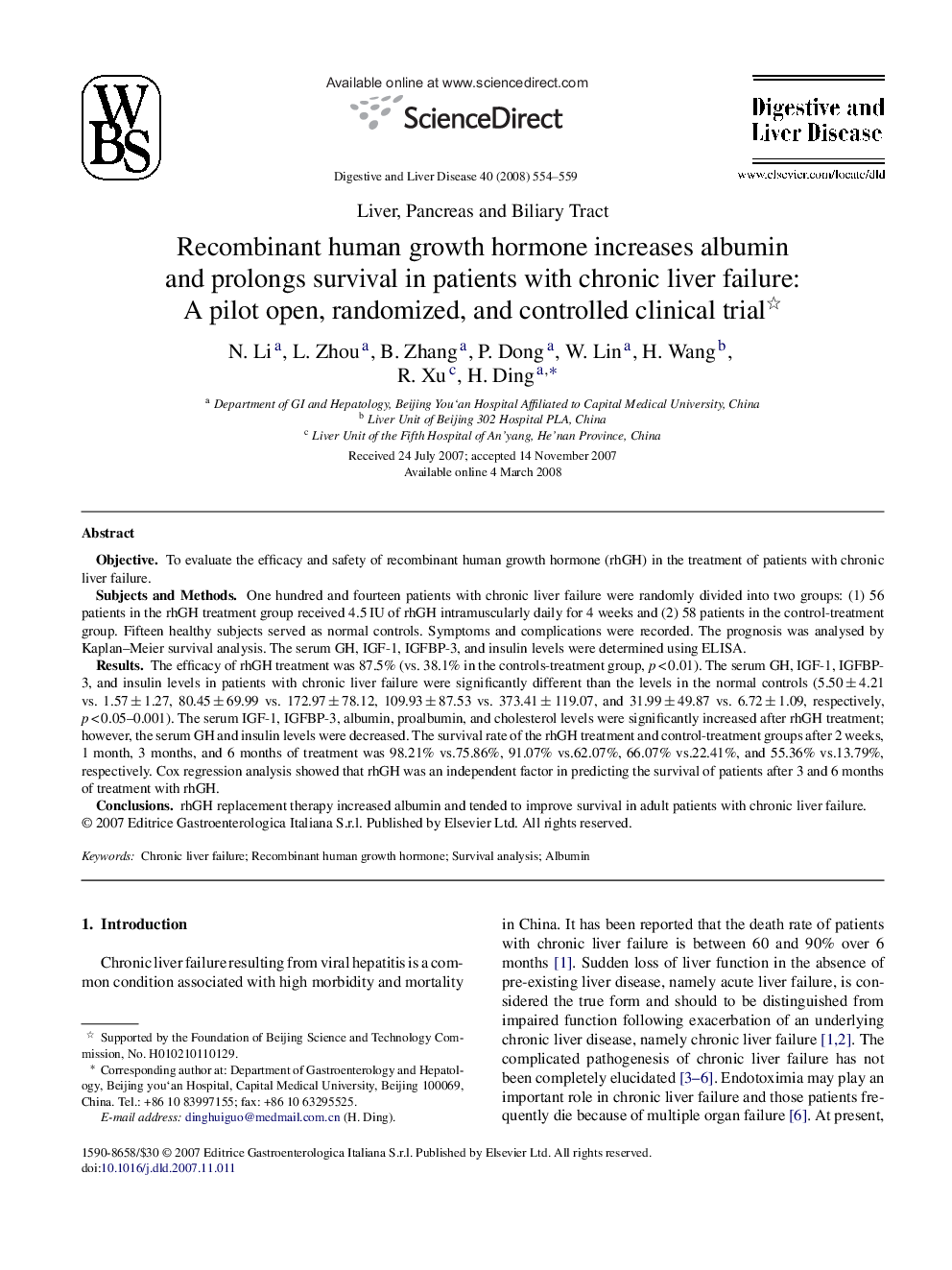| Article ID | Journal | Published Year | Pages | File Type |
|---|---|---|---|---|
| 3265187 | Digestive and Liver Disease | 2008 | 6 Pages |
ObjectiveTo evaluate the efficacy and safety of recombinant human growth hormone (rhGH) in the treatment of patients with chronic liver failure.Subjects and MethodsOne hundred and fourteen patients with chronic liver failure were randomly divided into two groups: (1) 56 patients in the rhGH treatment group received 4.5 IU of rhGH intramuscularly daily for 4 weeks and (2) 58 patients in the control-treatment group. Fifteen healthy subjects served as normal controls. Symptoms and complications were recorded. The prognosis was analysed by Kaplan–Meier survival analysis. The serum GH, IGF-1, IGFBP-3, and insulin levels were determined using ELISA.ResultsThe efficacy of rhGH treatment was 87.5% (vs. 38.1% in the controls-treatment group, p < 0.01). The serum GH, IGF-1, IGFBP-3, and insulin levels in patients with chronic liver failure were significantly different than the levels in the normal controls (5.50 ± 4.21 vs. 1.57 ± 1.27, 80.45 ± 69.99 vs. 172.97 ± 78.12, 109.93 ± 87.53 vs. 373.41 ± 119.07, and 31.99 ± 49.87 vs. 6.72 ± 1.09, respectively, p < 0.05–0.001). The serum IGF-1, IGFBP-3, albumin, proalbumin, and cholesterol levels were significantly increased after rhGH treatment; however, the serum GH and insulin levels were decreased. The survival rate of the rhGH treatment and control-treatment groups after 2 weeks, 1 month, 3 months, and 6 months of treatment was 98.21% vs.75.86%, 91.07% vs.62.07%, 66.07% vs.22.41%, and 55.36% vs.13.79%, respectively. Cox regression analysis showed that rhGH was an independent factor in predicting the survival of patients after 3 and 6 months of treatment with rhGH.ConclusionsrhGH replacement therapy increased albumin and tended to improve survival in adult patients with chronic liver failure.
